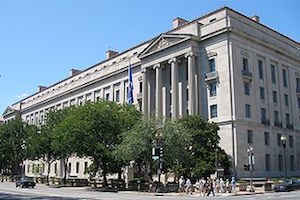The U.S. Department of Justice’s (DOJ) Civil Rights Division, in a letter dated May 1, 2012, expressed concern to Alabama’s Superintendent of Education over the impact the state’s controversial immigration law, HB 56, has had on Hispanic children’s school attendance and overall educational opportunities. HB 56, which Alabama’s Legislature passed in June 2011, has generated much controversy and multiple legal challenges. Much of the controversy comes from the law’s insertion of immigration enforcement into numerous aspects of Alabamans’ daily lives and its focus on people whom law enforcement suspects, on sight, of being undocumented. Federal courts have blocked some portions of the law, and the U.S. Supreme Court will hear arguments on the bill’s constitutionality later this year. In the meantime, the DOJ is investigating how the law has affected immigrant populations and populations often associated with immigrants, particularly Hispanic communities. The dispute demonstrates how immigration reform efforts can have far-reaching consequences.
The Alabama immigration law requires law enforcement to inquire about a person’s immigration status if, in the course of a lawful stop, the officer has reason to suspect that the person might be undocumented. The law does not necessarily provide guidance on what constitutes “reasonable suspicion,” so critics contend that this is an invitation to profiling of Hispanic Alabama residents, regardless of their citizenship or immigration status. One part of the law struck down by a federal appeals court, identified as § 28, would have required public schools to gather data on their students; immigration status. That section was only in effect between September 29 and October 14, 2011. A 1982 Supreme Court case guarantees children the right to attend school, but the law would have required them to disclose immigration information to the school, who would then turn it over to state officials.
The DOJ’s Civil Rights Division, charged with enforcing education anti-discrimination laws, expressed concern in its letter over statistics showing a sharp decline in school attendance among Hispanic students since HB 56 became law. Absence rates among Hispanic students tripled in less than a year, while other groups’ rates remained the same. The DOJ says the decline in attendance was sharpest while § 28 was in effect, but it has continued since then. Between the beginning of the 2011-12 school year and February 2012, they estimate that 13.4 percent of the state’s Hispanic children left school, largely out of fear about immigration consequences for themselves or family members. The fact that a state law may have driven these students to leave school could constitute a violation of federal anti-discrimination laws, according to the DOJ.
Alabama’s school superintendent has responded to the DOJ letter, saying that his office worked to keep HB 56 from driving students away. His efforts were unnecessary, he said, after the Eleventh Circuit struck down § 28 and other portions of the law. According to the Birmingham News, 98.7 percent of Hispanic schoolchildren, high school or younger, in Alabama are United States citizens, nearly all of them “natural born.”
The United States immigration system is often complicated, confusing, and rife with politics. To schedule a confidential consultation with a skilled and experienced Ohio immigration visa lawyer who can help guide you through the system, contact Gus Shihab online or at (888) 915-5057 today.
Web Resources More Blog PostsCoalition of Unions and Civil Rights Groups File Complaint Against Alabama Immigration Law with United Nations, Immigration Visa Lawyer Blog, April 10, 2012
New Proposed Law Would Require Schools to Verify Students’ Immigration Status, Immigration Visa Lawyer Blog, February 2, 2012
Alabama Immigration Law Shows More Unintended Consequences After Arrest of German Businessman, Immigration Visa Lawyer Blog, December 7, 2011
Photo credit: ‘Usdepartmentofjustice’ by User:Coolcaesar [GFDL or CC BY-SA 3.0], via Wikimedia Commons.

